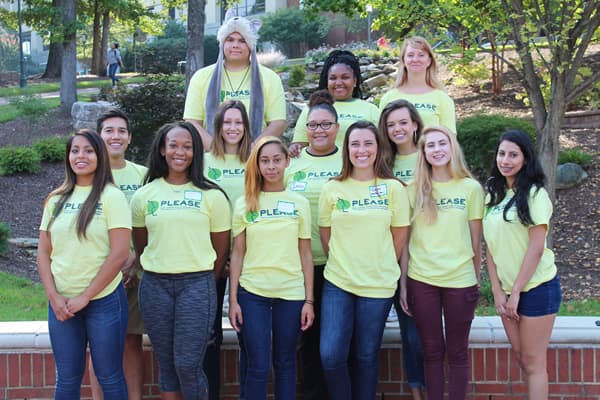Study Considers Barriers and Opportunities in Peer Sexuality Education

A new article co-authored by UNC Charlotte public health researchers is exploring peer sexuality education at predominantly white institutions (PWIs), historically Black colleges and universities (HBCUs) and community colleges.
UNC Charlotte public health faculty members Jessamyn Bowling and Lorenzo Hopper collaboration with faculty at Johnson C. Smith University and Central Piedmont Community College to publish “‘A beacon of the community we stand in’: barriers and facilitators to standardising peer sexuality education at higher education institutions in the south” in the journal Sex Education. Two UNC Charlotte undergraduate students, Zoe Catu-Backhaus and Cody Williams, also contributed to the study.
“Peer sexuality education provides young people with an avenue to ask questions and learn about sexual health in more comfortable settings. This study highlights the barriers, facilitators, and opportunities for shared support through resource sharing for higher education institutions,” Hopper said.
While faculty,staff and students reported that peer sexuality education was needed, stigma and conservative backgrounds of students were challenges. The availability or lack of institutional resources, such as the availability of student organizations or a health center, were perceived as facilitating or hindering a program. When asked about sexuality topics, participants at all three institutions said that an awareness of one’s own body was necessary for understanding sexual consent. Expanding a peer sexuality education program off campus would have benefits of reaching more rural areas but would require further training and support.
“Emerging adults often look to their peers for guidance,” Bowling said. “Peer sexuality education has been shown to improve students’ understanding of sexual health, but peer sexuality education needs attention to the institutional context before it can be standardized across universities or colleges. And in an era of limited resources, inter-institutional collaboration is often the smart way to go and can work towards equity between types of colleges and universities.”
Findings from this work supports the idea that peer sexuality educational elements (e.g. structure and topics) may be standardized across institutions while tailoring to specific campus facilitators and barriers. Though challenges exist, the researchers said the need for conversations about sexuality and peer-to-peer learning are now more important than ever.
At UNC Charlotte, Peer Leader-Educators Advocating for Sexuality Education (PLEASE) is taking applications for new peer educators in September. Follow the group on Instagram for updates.